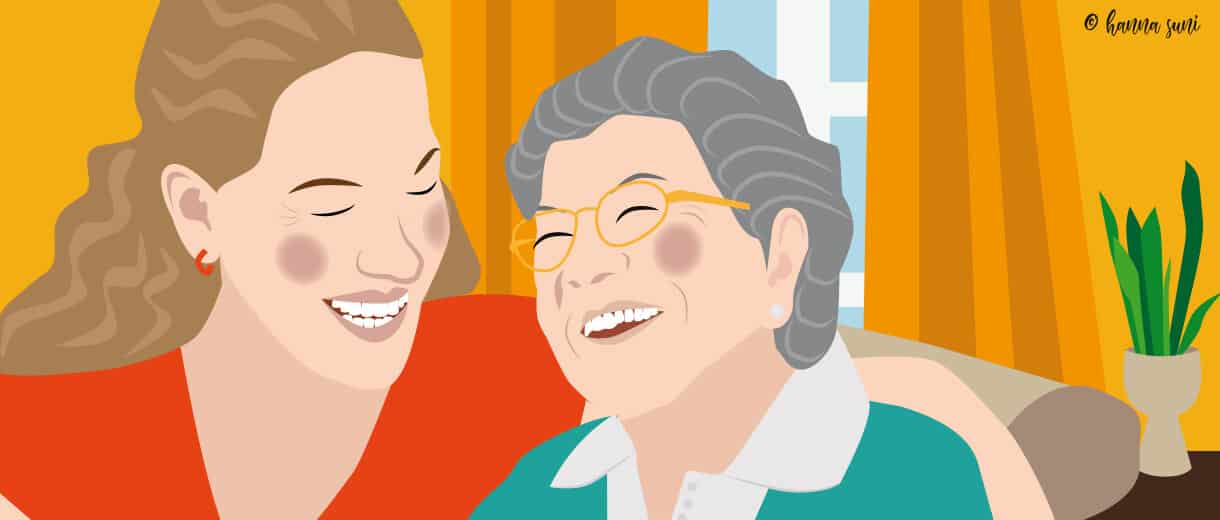Are You A Carer? Why It’s Important To Look After Yourself
Looking after someone in need can be rewarding, but it can also take its toll. Whether it’s about helping a family member or a friend who has an illness, disability, mental health problem or addiction, being a carer is something that can be mentally and physically exhausting and according to research from The North American Menopause Society, midlife women are more likely than men to take on the role of primary caregiver.
Family caregiving has both positive and negative consequences – researcher Judith A. Berg writes on the white-paper ‘The Stress of Caregiving in Midlife Women‘-. While some caregivers experience an improved sense of wellbeing linked to personal growth and fulfilment, for the majority this role has negative consequences. Carers report health effects including psychologic distress, lowered life satisfaction, social isolation, sleep disturbances and a variety of physical problems. Perhaps the most serious long-term aspect for female informal caregivers is financial: many women who leave paid employment to become informal caregivers never return to paid employment, and those who do return to work after a caregiving hiatus may be forced to accept lower wages.
So, how can we get back on track? Although it sounds difficult, try to take time off without feeling guilty, identify and acknowledge your feelings, accept the support of others and most of all, seek supportive counselling when you need it.
Looking After Yourself
If you find it hard to switch off, maybe it’s time to reach out for help. Sometimes caring can feel overwhelming, however, looking after yourself is the best way to ensure that you can be there to provide the care and support you want to for your friend or relative.
As difficult as it might seem, you need to take regular time out, without apologising, as this will help build your resilience.
You may need an hour or two to clear your head or a day to help you feel more rested – therapists from the mental health charity Mind suggest-. You could go out, take a bath or turn your phone off for an agreed period of time. Try to make time for things you enjoy. If possible, try and plan regular breaks into your routine. This can help you make plans in advance, give you something to look forward to and make sure the person you look after knows what to expect.
Also, don’t be afraid to admit when you’re feeling burned out and try not to beat yourself up if you think things have gone wrong. Allow yourself some space to gain a better perspective: carers often feel guilty about taking time for themselves but you won’t have anything to give otherwise. Self-care keeps you healthy, and it doesn’t require anything extravagant: it can be as simple as taking the time to read a good book. “The Caregiver’s Survival Handbook: How to Care for Your Aging Parent Without Losing Yourself” by Alexis Abramson, for instance, it’s a practical guide that helps caregivers figure out how to care for ageing loved ones, provide for other family members, attend to their own career without losing themselves in the process.
If you need to take some time off, ask family members to step in while you have a break. If this is not possible, consider hiring a private caregiver to relieve some of the pressure. Connecting with other carers could also be a way to manage your stress and find support. There are a lot of online groups, forums and networks with regular meetups you could reach out (search for Caregiver.org, AARP, Carers UK, Age UK, Macmillan, The Carers Trust).
If you are concerned this situation might affect your job, talk to your employer about being a carer for a family member. There will be days when you are not feeling as resilient as usual, and you simply will not feel ready to apply yourself 100% all of the time. If your manager knows what else is going on may even be able to help.
Good friends matter
Carers are at particular risk of feeling socially isolated: they don’t have time or energy to keep up with their friends, as it is all spent caring. Maintaining friendship networks is so important for your own well-being and for giving you the energy to keep on caring. If you have friends who can’t understand or empathise, don’t blame them: use your time with them to escape and think about the other things that matter in your lives. Normality will give you strength and perspective.
What your local council can do
Your local council might be able to arrange practical help to allow you to care more effectively and reduce your stress. This could include things like arranging for someone to step in for a while to give you a break or providing some extra support for the person you care for, to give you more time for your other responsibilities.
Most of all, remember: you’re doing an incredible thing for someone else. It may be a tough journey, but you will never regret that you made the decision to care for someone.
Data Corner*
Recent research by Carers UK has found that in the UK one in five employees aged 45 and over expect to have to leave their job to care for an adult relative and half of them will become ‘sandwich carers’ who will then become ‘worn down emotionally, physically and financially’. There are, according to a new study, approximately 2.6 million employees who will have to make some sort of financial sacrifice in terms of loss of salary, pension and savings so they can take on caring responsibilities. The research found that 20% of mid-life women were likely to leave their job to provide care, but not far behind are men (17%) in the same age bracket.
An ageing population and pressure on health and social care budgets mean that more and more people in the UK are becoming unpaid carers. The value of care provided by unpaid carers in the UK has been calculated as £132 billion per annum.





